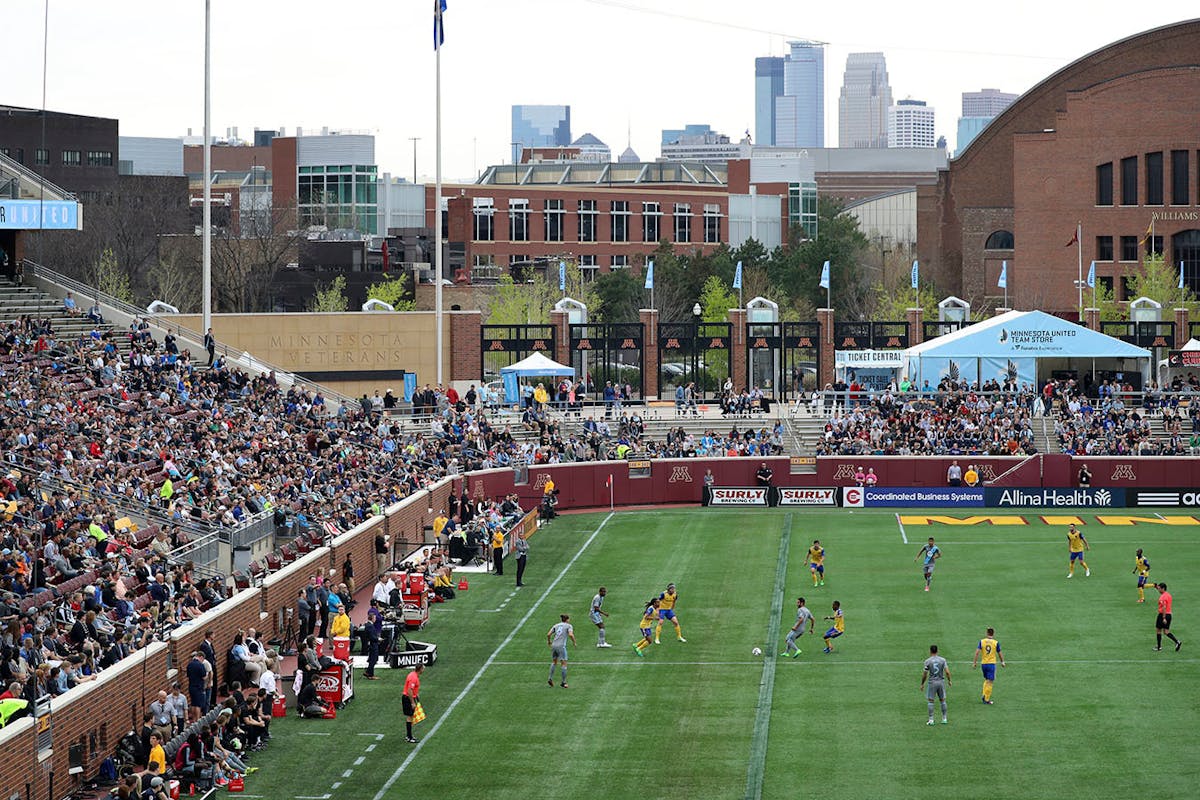St. Paul is looking to use tax-increment financing to clean up the soil at the future site of the Minnesota United stadium after the city's plan to secure grant money for the work fell through.
City leaders agreed last year to cover $1.5 million worth of remediation on a portion of the stadium site where the Metropolitan Council used to store buses. St. Paul Finance Director Todd Hurley said he thought the city could cover its costs with grant money secured by the St. Paul Port Authority, which is leading the remediation efforts.
"We were not looking to use any city funds on the remediation of this," Hurley said.
But restrictions on the state and Met Council's grant programs meant their grant money could not be used to fix up the Met Council-owned bus barn site. So Hurley moved to plan B: using tax-increment financing (TIF) from two other Port Authority projects. Tax-increment financing diverts additional tax revenue that a new development generates and uses it to help cover certain development costs.
The board of the Port Authority signed off on the plan last week, and it will go before the City Council for a public hearing July 19.
The Port Authority's Energy Lane and Great Northern business centers are both TIF districts in St. Paul and will have additional revenue beyond what's needed to cover development costs there, said Monte Hilleman with the St. Paul Port Authority. The business centers are not connected geographically to the stadium site, and they are located north and northeast of the property.
St. Paul would use its internal loan fund to pay as needed for environmental remediation work at the stadium site, Hurley said, and then be reimbursed with money from the TIF districts. Hurley said the city hopes to use less than $875,000 of TIF revenue, assuming another Ramsey County grant comes through and covers more of the city's remediation expenses at the stadium site.
The city initially committed the $1.5 million to spur other investment in the bus barn site, Hilleman said.
"If the city kicks in on the front end, then the Met Council was willing to come to the table," he said.
The Met Council has since pledged to contribute up to $4.5 million to ready the former bus storage site for development, Hilleman said. The full cleanup of the stadium land, which includes private property north and east of the bus barn site, is estimated to cost more than $7.1 million, he said.
The Minnesota United is privately financing the construction of the $150 million stadium, but various public agencies agreed to chip in for site improvements. St. Paul officials said last year they would put $18.4 million toward public uses and infrastructure at the property, like storm sewers, relocating utilities and remediating soil.
While the city and Port Authority work through funding, stadium developers started leveling dirt at the site last month using private money.
The Port Authority, team officials and private developer Irgens plan to redevelop the privately owned property by the bus barn site, but not all the conditions of their development agreement have been met, Hilleman said. Until those conditions are met, the soccer team must pay for any environmental remediation expenses at the site, Hilleman said. He anticipates the lingering development agreement issues will be resolved Aug. 20.
United officials expect to open the stadium in 2019.
Jessie Van Berkel • 612-673-4649

Baseball Metro Player of the Year packs up his five tools and leaves

Prep baseball 2024: 35 Minnesota stars who the recruiters covet
Police searching for St. Paul home intruder who raped, robbed woman

Friend heard money, relationship woes from man tied to Chanhassen killing who took his own life

